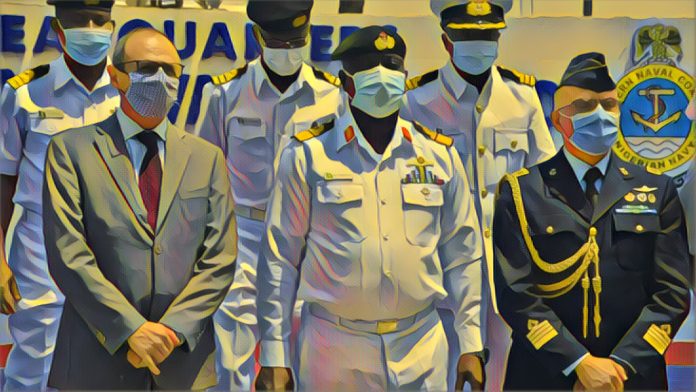Nigeria and France have reaffirmed their commitment to cooperate on maritime security in the Gulf of Guinea, a region plagued by piracy and other criminal activities. The two countries participated in joint exercises Crocodile Lift and Grand African Nemo, which took place from October 9 to October 15.
The exercises involved 12 Nigerian Navy ships and one each from Cameroon, Ghana, Togo, China, France, and Portugal. They also included two French aircraft, a Falcon 50 maritime surveillance aircraft, and an Atlantique maritime patrol aircraft. The exercises aimed to enhance regional coordination and response to threats like piracy, trafficking, illegal fishing, and maritime pollution.
According to the International Maritime Bureau (IMB), the Gulf of Guinea accounted for 65 incidents of piracy and armed robbery against ships in the first half of 2023, an increase from 58 incidents for the same period in 2022. Of the 65 incidents reported, 57 vessels were boarded, four had attempted attacks, two were hijacked, and two were fired upon.
The IMB also noted incidents shifting from the Economic Community of West African States (ECOWAS) waters to the Economic Community of Central African States (ECCAS) maritime domain. The IMB urged regional authorities to enhance information-sharing and collaboration to combat the menace of piracy.
The joint exercises between Nigeria and France were part of the Yaoundé Architecture, a framework for maritime security cooperation among ECOWAS, ECCAS, and the Gulf of Guinea Commission. The Yaoundé Architecture was established in 2013 with the support of France and other international partners.
The Nigerian Chief of Naval Staff, Vice Admiral Emmanuel Ogalla, said that national and international collaboration was needed to mitigate the threats in the Gulf of Guinea. He added that the exercises had improved the Nigerian Navy’s and its partners’ capacity to protect the region’s maritime interests.
The French Navy’s amphibious assault ship, Mistral, which hosted the exercises, is part of Operation Corymbe, a permanent naval presence in the Gulf of Guinea since 1990. The operation aims to protect French interests in the area and support regional countries in maintaining peace and security.
The Gulf of Guinea is a strategic region for global trade, energy supply, and a rich source of biodiversity and fisheries. The joint exercises between Nigeria and France demonstrate their resolve to safeguard these vital resources and foster regional stability.
Source: Tribune Online



